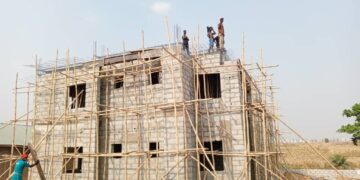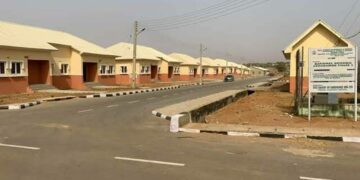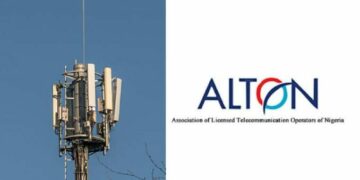On a Monday morning in Lagos, Amara weaves through minibus traffic, clutching her worn backpack. She races the clock to reach a classroom teeming with hopeful faces, all vying for a spot under a single desk lamp.
This scene unfolds daily in Nigeria’s largest megacity, where millions chase education amid concrete sprawl.
City life promises opportunity, yet students confront harsh realities. Many urban learners assume they only need a custom essay writing service to bridge gaps, yet they face bigger hurdles, including overcrowded lecture halls and sky‑high transport costs. Nigerian megacities draw youth with dreams of success, but they often land in labyrinths of gridlock and under‑resourced schools.
Still, you sense resilience in every corner:
Street libraries emerge in alleys; tech startups pilot learning apps on smartphones.
That spirit fuels fresh solutions. As Nigeria’s cities expand — with Lagos nearing 18 million residents and Abuja pushing 4 million — understanding how urbanization reshapes access to education and student lifestyles matters.
Urbanization Trends in Lagos and Abuja
Rapid growth defines Nigeria’s urban giants:
Between 2024 and 2025, the Lagos metro surged by nearly 4 percent, swelling to an estimated 17.2 million people. Abuja’s urban zone now houses close to 3.8 million souls, climbing faster than any other region in West Africa. Rural migrants pour into both cities, chasing jobs, modern amenities, and perceived pathways out of poverty.
Experts warn that informal settlements ballooning at city peripheries now shelter more than 60 percent of urban dwellers. These areas sprout without planning, straining road networks, power grids, and water supplies. Yet they also sprout ambitions:
Children dart across dusty lanes, backpacks swinging, determined to learn. Policymakers face a tricky balancing act: guide orderly development while preserving the hope that draws families in.
Strain on Educational Infrastructure
Overcrowded Classrooms & Teacher Shortages
Public schools shoulder extra pupils by adding shifts: early morning classes for one group and afternoon sessions for another. Still, average student-teacher ratios exceed 50:1 in many inner‑city schools.
In crowded rooms, teachers speak louder and move faster, struggling to give each child attention. Students scribble notes on shared benches, their questions lost in the hum of sixty peers.
Out‑of‑School Children in Urban Slums
You might assume urban kids enjoy full access to education, but the reality differs starkly:
Nigeria counts over 10 million out‑of‑school children nationwide; a large slice lives in city slums. Families cite fees for uniforms, textbooks, and school levies as barriers. Some children drop out to hawk wares on street corners, trading education for daily income.
That choice deepens skills gaps and hinders long‑term growth.
Impact on Student Commuting and Daily Routine
Long commutes drain students’ energy and time:
Many trek five kilometers each way, weaving through market traffic or cramming into minibusses packed beyond capacity. A Lagos commuter student spends over two hours on the road daily. Those hours subtract from study time, sleep, and part‑time work.
You copy notes on shaky commuter seats when your homework waits at home.
Transport fares climb every rainy season. For families on tight budgets, that extra 50 naira per trip can force tough decisions: skip lunch today or miss tomorrow’s class. The tightrope between attendance and affordability keeps many on edge. Students juggle late buses and moonlit reading sessions at makeshift study spots even after classes end.
Informal Housing, Safety & Well‑Being
They squeeze into makeshift rooms of corrugated iron and rough plywood, where eleven brothers and sisters might all sleep on the same patch of floor barely bigger than a king‑size mattress. Lanterns sputter in place of reliable power, casting jittery shadows across walls that weep when the rain hits the leaky roof. No proper toilets or clean water means studying in silence feels impossible.
Diseases flourish in these crowded lanes:
Pools of stagnant water welcome mosquitoes, and open gutters carry cholera straight into doorways. When an outbreak hits, whole classrooms empty for days or weeks until parents feel safe sending children back. Every evening, the roar of passing traffic and the hum of diesel generators push bedtime later and later. When students finally rest, their nerves and notebooks are frayed.
Psychological impacts bite deep:
Students worry about theft, harassment, or sudden evictions from informal settlements. That stress eats at their morale, leaving them anxious when they finally settle behind a school desk. In these cramped quarters, mere survival often overshadows academic ambition.
Technological & Community‑Led Responses
Innovators spot opportunity in adversity:
- A Lagos‑based edtech startup built a low‑bandwidth learning platform that streams lessons via basic smartphones.
- Teachers upload recorded lectures, and students download bite‑size modules whenever power and data allow.
- Community volunteers host weekly “flash schools” in church halls, teaching core subjects on donated whiteboards.
Nonprofits partner with tech firms to distribute solar‑powered tablets preloaded with textbooks. In Abuja, an alum association converted a derelict warehouse into a satellite school with desks and a small library. These grassroots efforts showcase creativity—students adapt and thrive when fresh options emerge.
Policy Interventions & Recommendations
The government must step up funding and foresight. As UNESCO recommends, allocating 15–20 percent of the national budget to education could unlock new schools in high‑growth districts. Urban planners should integrate school‑site allocation into city master plans, ensuring classrooms grow alongside housing developments.
Transport ministries can introduce subsidized student passes or staggered school bus routes. That approach eases fare burdens and trims commute times. Housing authorities must upgrade informal settlements with reliable electricity, sanitation, and safe study spaces. Finally, expanding broadband access and stable power in slums will make e‑learning scalable and inclusive.
So?
Urbanization carries promise and peril in equal measure. Nigerian megacities offer hope through greater opportunities, yet unchecked growth deepens educational divides and strains student well‑being.
Now, it’s time for action.
Government leaders must champion budgetary reforms. Private companies can sponsor school upgrades. Citizens and civil society groups should spearhead grassroots initiatives. Together, we can shape cities that cultivate informed minds, empower productive lifestyles, and fuel the nation’s next generation of leaders.





